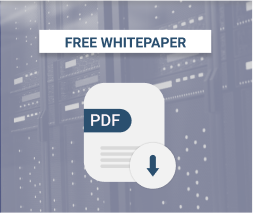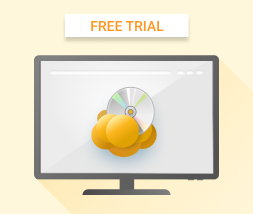One of the most critical aspects of a sensible backup strategy is the selection of backup storage. From Google Drive to a private Minio server, the range of options is truly infinite. Some of those storage services, however, come with limitations that force you to examine professional-grade choices.
Introduction
When designing backup strategies, people usually focus on things like backup frequency, which files to back up, rotation schemes, and more importantly — backup storage. Experience tells us that the determining factor for storage selection is often pricing. People tend to select services like Amazon Cloud Drive, Google Drive, and Microsoft OneDrive to optimize their storage costs.
What users don't consider at first but only discover later is that low pricing usually comes with certain limitations like capped storage, inconsistent service agreements, poor security arrangements, and lack of information about geographical redundancy to name a few. That's why we decided to write this article and highlight the advantages of using professional-grade cloud storage services like Amazon S3 and Google Cloud Storage as opposed to their consumer-grade counterparts that prove to be headaches in the long run.
General Concerns about Consumer Storage
Inconsistent Service Agreements
 Amazon Cloud Drive has recently discontinued its unlimited storage plan. Imagine if you backed up 50 TB of data to Amazon Cloud Drive and then discovered that all this data has to be transferred elsewhere due to a sudden rise in prices. Consumer-grade storage in this sense is not reliable and from time to time forces you to look elsewhere.
Amazon Cloud Drive has recently discontinued its unlimited storage plan. Imagine if you backed up 50 TB of data to Amazon Cloud Drive and then discovered that all this data has to be transferred elsewhere due to a sudden rise in prices. Consumer-grade storage in this sense is not reliable and from time to time forces you to look elsewhere.
Professional-grade storage never limits the amount of provisioned storage and changes in service agreements usually reflect changes in pricing policies (which show the downward trend).
Undetermined Data Availability
 None of the big three consumer-grade cloud storage services reveals the number of data centers available to store your data. You're essentially left with lack of information about geographical redundancy and data replication across data center nodes. That alone should question the reliability of such cloud storage services and wonder what would happen to the data if the data center containing it would go offline. Unknown availability might be ok for storing family pictures, but it's certainly a critical issue when talking about production business-grade data.
None of the big three consumer-grade cloud storage services reveals the number of data centers available to store your data. You're essentially left with lack of information about geographical redundancy and data replication across data center nodes. That alone should question the reliability of such cloud storage services and wonder what would happen to the data if the data center containing it would go offline. Unknown availability might be ok for storing family pictures, but it's certainly a critical issue when talking about production business-grade data.
Professional storage comes with local, regional, or even cross-country data replication that ensures data integrity in the event of any catastrophe. When handling sensitive and critical information, reliable backup storage is of prime importance.
Insufficient Security
 While all consumer-grade storage services offer server-end encryption, management of encryption keys is beyond your control. You're thus only protected against a data breach from the data center side. If a cybercriminal takes possession of your email account, all of your data in such storage will be instantly accessible.
While all consumer-grade storage services offer server-end encryption, management of encryption keys is beyond your control. You're thus only protected against a data breach from the data center side. If a cybercriminal takes possession of your email account, all of your data in such storage will be instantly accessible.
In addition to client-side encryption performed by MSP360 Backup, professional-grade storage enables you to manage server-side encryption keys. For example, Amazon S3 enables you to use their server-side encryption with custom encryption keys provided by you. That way your data is encrypted on both sides with your keys.
Technical Limitations of Consumer Storage
Aside from the general concerns about consumer-grade storage mentioned earlier, let's examine a few technical limitations that should urge you to consider professional storage.
Absence of Multi-Threading
 None of the mentioned storage services offer multi-threading which considerably reduces the upload and download speeds of big files. Apps like MSP360 Backup heavily rely on multi-threading to simultaneously upload multiple files. If upload speeds are of major concern, consumer-grade storage is not the right choice.
None of the mentioned storage services offer multi-threading which considerably reduces the upload and download speeds of big files. Apps like MSP360 Backup heavily rely on multi-threading to simultaneously upload multiple files. If upload speeds are of major concern, consumer-grade storage is not the right choice.
Needless to say, professional storage offers scalable multi-threading that significantly reduces upload and download speeds and ultimately makes for a very smooth experience.
Unpredictable Speed Reduction
 Some of the consumer-grade storage solutions are known to reduce the transfer speed when trying to upload many files. In our tests, Google Drive has been noticed to do that frequently. An initial upload that might take 2 hours could very well end up being a 10-hour nightmare. Conversely, professional storage sets no limits on the bandwidth and maintains consistent speeds throughout the upload session.
Some of the consumer-grade storage solutions are known to reduce the transfer speed when trying to upload many files. In our tests, Google Drive has been noticed to do that frequently. An initial upload that might take 2 hours could very well end up being a 10-hour nightmare. Conversely, professional storage sets no limits on the bandwidth and maintains consistent speeds throughout the upload session.
Inability to Use Compression in Microsoft OneDrive
 Some consumer-oriented storage solutions like Microsoft OneDrive request the size of all files prior to upload. When using compression, apps like MSP360 Backup are unable to provide that information before the files are compressed and therefore compression is unavailable. Professional storage is more flexible in this regard and does not face you with issues of this sort.
Some consumer-oriented storage solutions like Microsoft OneDrive request the size of all files prior to upload. When using compression, apps like MSP360 Backup are unable to provide that information before the files are compressed and therefore compression is unavailable. Professional storage is more flexible in this regard and does not face you with issues of this sort.
The Absence of Upload Continuation in Amazon Drive
 Suppose you're uploading a 10-gigabyte file. If your internet connection falls out at a 90% mark, the file will start re-uploading from scratch when the connection is restored. If you have capped bandwidth, such experiments may cost you a pretty penny.
Suppose you're uploading a 10-gigabyte file. If your internet connection falls out at a 90% mark, the file will start re-uploading from scratch when the connection is restored. If you have capped bandwidth, such experiments may cost you a pretty penny.
Professional storage naturally provides continuous file upload so you can gradually transfer large files regardless of what may come your way — internet connection outage, computer glitch, or any other issue.
Who is Consumer Storage for?
Now that we examined technical limitations and general concerns about consumer storage, let's take a moment to reflect on the objectives of consumer storage. Cloud storage solutions like Amazon Drive, Google Drive, and Microsoft OneDrive have been designed with file sharing and computer sync in mind. And if that's what you need — sharing files between your friends or colleagues, go for it. You don't need multi-threading or server-side encryption to share a presentation for your next stand-up meeting; just put it in Google Drive and send over the link. On the other hand, professional data backup necessitates the use of professional-grade storage to ensure flawless and sustainable business operation for years to come.
Undoubtedly, savvy tech-heads might come up with a workaround to alleviate any issues discussed in the paragraphs above. However, you should first ask yourself if workarounds are something that you'd like to do in the long run. It might appear as if consumer storage will lower your bills; but first consider the problems that come with supposed savings: insufficient security, lack of data integrity, inconsistent service agreements, etc. Is that something you'd like to incorporate into your business?
Conclusion
Professional- and consumer-grade storage both have their objectives and target audiences. Designing a sensible backup strategy should definitely utilize professional storage like Amazon S3, Google Cloud, or Microsoft Azure to perform a backup of sensitive and critical data. Coupled with MSP360 Backup, professional storage will provide you with scalable long-term storage with robust security, great upload and download speeds as well as data integrity so that your business will continue its operations regardless of what may come its way.






